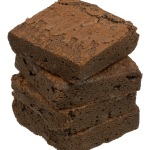3 Things Your Nutritionist Wishes You’d Stop by Joan Kent, PhD
Nutritionists have the client’s best interest at heart. We may not all agree on every nutrition point, but we do want our clients to get results and feel great.
I’d guess most nutritionists would like it if their clients stopped the following.
- Eating “Good for You” Foods You Hate
Deprivation can make us do strange things with food. Feeling deprived can result from eating too little food so you’re always hungry, always thinking about food, always one step away from bingeing.
But there’s more to it.
The main point is to avoid eating foods you hate. Even if you heard they’re good for you.
Chances are your nutritionist can find a food that you won’t hate that has the same health benefits.
Most importantly, if you dislike what you’re eating, you’ll feel deprived – just as if you were semi-starving yourself throughout the day. Deprivation’s just another kind of binge waiting to happen.
- Using Food as Entertainment or Reward
We eat when we’re bored, or to take a break from tedious work. We eat to procrastinate on a work project we dread starting. We eat because we did a killer workout that morning. We eat to celebrate having a great day. We eat to celebrate hitting our weight loss goal that week.
Fill in your own.
In one athletic training program, a participant refused to follow my food guidelines. Why? She was working out hard in the program and felt entitled to eat any foods she wanted.
When the coach took her weight and measurements at the end of the program, though, she was disappointed. Hers had increased. It was a shame, too. She would probably have performed better in the program if she had followed the food plan.
It seems odd that we’d eat more food – or junky food – when things are going well. But, as just one example, endorphins (beta-endorphin) can be released when mood state is low AND when mood is “up” and positive.
Beta-endorphin inhibits the satiety center of the brain. It makes us want to eat more and often more junk.
Better to go with non-food rewards.
- Using Food to Relieve Stress
Eating to relieve stress may happen when we’re frustrated, or at the end of a bad day. Or in the middle of the bad day. Stress also makes us likely to reach for junk food.
Stress time is a bad time to eat. The digestive system basically shuts down – reduced saliva, lack of contractions in the digestive tract, other stress changes. The body just isn’t ready for food.
Foods change brain chemistry, so they change our mental/emotional state. When our mood is ‘down’ it’s almost instinctive to look for something to lift us out of it.
Even animals do it. Researchers have said that animals don’t eat for calories or nutrition per se, but for “optimal arousal.”
That’s why when we’re stressed, we often choose big brain chem changers.
Sugar triggers quick changes in brain chemicals, and is a common stress reliever because of that.
But other comfort foods (mashed potatoes, mac & cheese, spaghetti, biscuits, chips, pizza) are common.
If your favorite comfort food isn’t on that list, it’s probably still a state-changer. State changing is the key.
Your nutritionist would probably prefer that you avoid stress-driven, high-calorie blowouts.
Are you fed up with feeling terrible about your weight, your health, your food choices? Say goodbye to cravings and hello to a new, improved you. Sign up for a free intro consult at LastResortNutrition and start achieving the results you deserve.
Brought to you by Dr. Joan Kent, best-selling author of Stronger Than Sugar.



